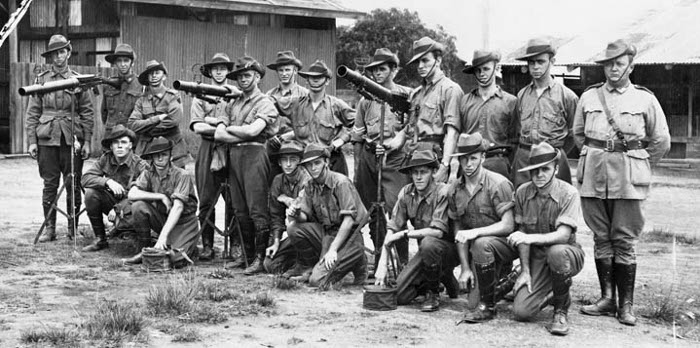Topic: Officers

Duties of the Adjutant (1915)
From: Hints to Young Officers in the Australian Military Forces, R. Stupart, published by Angus & Robertson, Sydney, 1915
"The adjutant is the commanding officer's mouthpiece. Through him is the channel of communication with all the officers and men of the battalion. Under the direction of the commanding officer he issues all orders, makes all reports and returns, keeps all records and rosters, and has charge of all correspondence pertaining to the administration of the battalion His relations with the commanding officer are close and confidential, and he should give his chief his entire, unqualified support. His loyalty should be absolute, and under no circumstances should he ever, by act or word, criticise the action of the commanding officer, no matter how much he may himself personally disapprove of the same.
In neatness and correctness of dress, and in soldierly bearing, he should be faultless, setting an example to the rest of the command. He should cultivate soldierly qualities and amiability and should be just, pleasant arid courteous to everyone, performing his duties with partiality to none and fairness to all.
As the adjutant occupies an office which is regarded in the service as representing accuracy, method and precision, and as he is often required to call the attention of officers to the violation of, and non-compliance with, regulations and orders, he cannot himself be too careful and punctilious.
An efficient adjutant must have a general knowledge of the administrative duties of all the other battalion officers and company commanders, and special knowledge of his own duties. He must be a dose student of the Defence Act, Regulations and Standing Orders, the Drill and Training Manuals. the Manual of Ceremonial, etc., and should read carefully the Military and District Orders as soon as issued.
Under no circumstances should he permit any other officer of the command to be better informed than he is in these subjects. Unless he is well posted on the duties of his office, he cannot command the respect and enjoy the confidence of his fellow officers. By study, application, and observation he should inform himself upon all points of military usage and etiquette, and on proper occasions aid with his advice and experience the subalterns of the command.
He is responsible to his commanding officer for everything connected with organization and discipline. He should form up all the parades of the battalion, inspect guards and piquets before mounting and when dismounting, attend all parades, accompanying the commanding officer in his inspection, supervise the work in the orderly room, make out states and see that the duties are allotted companies in accordance with the roster.
He is answerable for all the orderly room work, books, returns and orders, and has under his special direction the battalion sergeant-major, band-sergeant, orderly-room-sergeant, etc., and provost-sergeant. He should regulate all duty rosters, that of the officers being under his especial care.
He should be responsible for the discipline of the band, buglers, etc., and take charge of all the regimental drills, but at which only officers who arc his juniors in the battalion need fall in. Should it be necessary for an officer senior to the adjutant to fall in at his drills for instruction, another officer senior to all should be present.
The drills of all recruits and young officers should be under his especial direction.
The adjutant should pay particular attention to the instruction of the non-commissioned officers;' he should also inspect them, together with the band and buglers before every commanding officer's parade.
He should enter into the characters and disposition of the non-commissioned officers and men of his battalion, so as to be able to assist them with advice and information, when he perceives defects; and so that he may be qualified to recommend men for advancement when occasion offers.
He should be the first to set an example to officers and men in dress, obedience to orders, punctual attendance at parades, alertness and unceasing attention to all the duties of a soldier.
He should be constantly vigilant and careful that the orders are attended to and obeyed with the most scrupulous exactness. He should be active and persevering, never taking for granted that anything is right, but constantly seeing that it is so, in forming the commanding officer when he finds neglects or irregularities which it is not in his power to correct.
The dress, appearance and carriage of the men, both on and off duty, should be particularly attended to by him.
He should parade and inspect guards and armed parties proceeding on duty, which should then be handed over to the charge of the proper officer.
Although the adjutant should not interfere in the interior arrangements of companies, he should take notice of all deviations from the orders, and any. other irregularities he may observe on the part of the officers, non-commissioned officers or men.
He usually acts as prosecutor at court martials, when he should be prepared, if necessary, to answer to the character of the accused, or any other particulars which may be required, taking care that the accused and witnesses have been previously warned, and that everything is in order so as to prevent unnecessary delay. He need not, however, be present at courts of inquiry and regimental investigations of that nature unless required.
There is no circumstance in which the discipline of the battalion can in any way be concerned which the adjutant should think foreign to his observation, and its general efficiency will best evince his zeal and ability."

